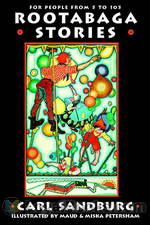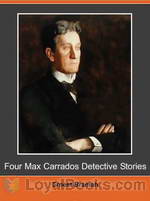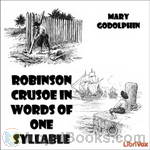|
Books Should Be Free Loyal Books Free Public Domain Audiobooks & eBook Downloads |
|
|
Books Should Be Free Loyal Books Free Public Domain Audiobooks & eBook Downloads |
|
Literature |
|---|
|
Book type:
Sort by:
View by:
|
By: Carl Sandburg (1878-1967) | |
|---|---|
 Rootabaga Stories
Rootabaga Stories
Carl Sandburg is beloved by generations of children for his Rootabaga Stories and Rootabaga Pigeons (which is not in the public domain), a series of whimsical, sometimes melancholy stories he originally created for his own daughters. The Rootabaga Stories were born of Sandburg’s desire for “American fairy tales” to match American childhood. He felt that the European stories involving royalty and knights were inappropriate, and so populated his stories with animals, skyscrapers, trains, corn fairies, and other colorful characters. | |
By: Ernest Bramah (1868-1942) | |
|---|---|
 Four Max Carrados Detective Stories
Four Max Carrados Detective Stories
Ernest Bramah is mainly known for his ‘Kai Lung’ books – Dorothy L Sayers often used quotes from them for her chapter headings. In his lifetime however he was equally well known for his detective stories. Since Sherlock Holmes we have had French detectives, Belgian detectives, aristocratic detectives, royal detectives, ecclesiastical detectives, drunken detectives and even a (very) few quite normal happily married detectives. Max Carrados was however probably the first blind detective. | |
 Wallet of Kai Lung
Wallet of Kai Lung
The Wallet of Kai Lung is a collection of fantasy stories by Ernest Bramah, all but the last of which feature Kai Lung, an itinerant story-teller of ancient China. The collection's importance in the history of fantasy literature was recognized by the anthologization of two of its tales in the celebrated Ballantine Adult Fantasy Series. | |
By: Mary Godolphin (1781-1864) | |
|---|---|
 Robinson Crusoe in Words of One Syllable
Robinson Crusoe in Words of One Syllable
Mary Godolphin was the pseudonym of Lucy Aikin who undertook translating great literature into single-syllable words so that young readers could enjoy plots that were considerably more interesting than, say, the McGuffey readers of the 1880’s or the “Dick and Jane” primers of the 1950s (still around today as “decodable readers” in elementary schools). She produced this volume based on Daniel Defoe’s most famous work, considered by many to be the first English novel (1719). She also rendered Bunyan’s Pilgrim’s Progress and Wyss’ Swiss Family Robinson, which she translated as well. | |
By: Friedrich Nietzsche (1844-1900) | |
|---|---|
 Case of Wagner / Nietzsche Contra Wagner / Selected Aphorisms
Case of Wagner / Nietzsche Contra Wagner / Selected Aphorisms
A collection of three of Nietzsche's writings concerning the music of Wagner. In particular, he relates Wagner's music as degenerate, unrefined and unintelligent and relates it to a gradually degenerating German culture and society. The translator provides a detailed introduction. | |
By: Hilaire Belloc | |
|---|---|
 First and Last
First and Last
“When a man weighs anchor in a little ship or a large one he does a jolly thing! He cuts himself off and he starts for freedom and for the chance of things. He pulls the jib a-weather, he leans to her slowly pulling round, he sees the wind getting into the mainsail, and he feels that she feels the helm. He has her on a slant of the wind, and he makes out between the harbour piers.” (quotation from Hilaire Belloc) | |
 On Something
On Something
“Now that story is a symbol, and tells the truth. We see some one thing in this world, and suddenly it becomes particular and sacramental; a woman and a child, a man at evening, a troop of soldiers; we hear notes of music, we smell the smell that went with a passed time, or we discover after the long night a shaft of light upon the tops of the hills at morning: there is a resurrection, and we are refreshed and renewed.” – Hilaire Belloc | |
 On Nothing & Kindred Subjects
On Nothing & Kindred Subjects
“I knew a man once, Maurice, who was at Oxford for three years, and after that went down with no degree. At College, while his friends were seeking for Truth in funny brown German Philosophies, Sham Religions, stinking bottles and identical equations, he was lying on his back in Eynsham meadows thinking of Nothing, and got the Truth by this parallel road of his much more quickly than did they by theirs; for the asses are still seeking, mildly disputing, and, in a cultivated manner, following the... | |
 Cautionary Tales for Children
Cautionary Tales for Children
| |
 The Free Press
The Free Press
I propose to discuss in what follows the evil of the great modern Capitalist Press, its function in vitiating and misinforming opinion and in putting power into ignoble hands; its correction by the formation of small independent organs, and the probably increasing effect of these last. (Introduction by Hilaire Belloc) | |
 More Peers : Verses
More Peers : Verses
| |
 Avril Being Essays on the Poetry of the French Renaissance
Avril Being Essays on the Poetry of the French Renaissance
| |
By: L. Frank Baum (1856-1919) | |
|---|---|
 A Kidnapped Santa Claus
A Kidnapped Santa Claus
| |
By: E. E. Smith (1895-1965) | |
|---|---|
 Spacehounds of IPC
Spacehounds of IPC
When the Inter-Planetary Corporation's (IPC) crack liner “IPV Arcturus” took off on a routine flight to Mars, it turned out to be the beginning of a unexpected and long voyage. There had been too many reports of errors in ship's flight positions from the Check Stations and brilliant physicist Dr. Percival (“Steve”) Stevens is aboard the Arcturus on a fact-finding mission to find out what's really happening, and hopefully save the honor of the brave pilots of the space-liner Arcturus from the desk-jockeys' in the Check Stations implications of imprecision - the nastiest insult you could cast at a ships pilot... | |